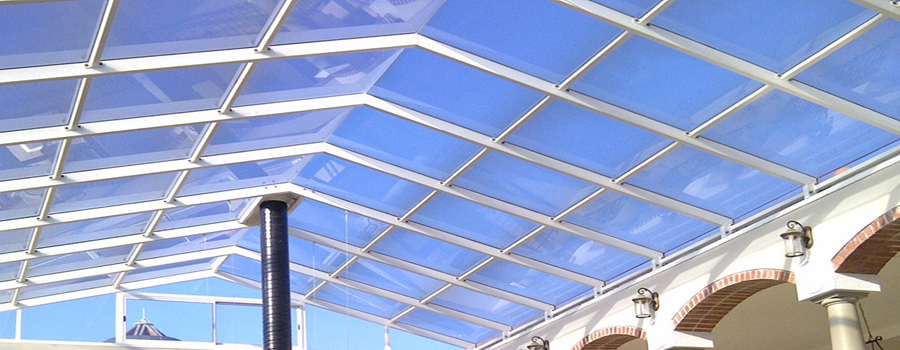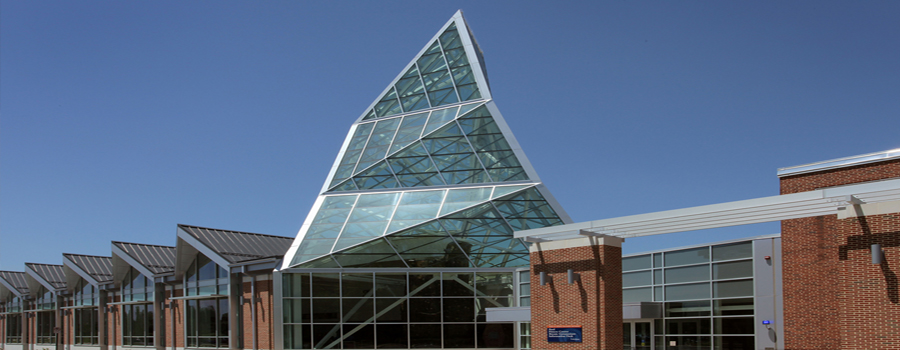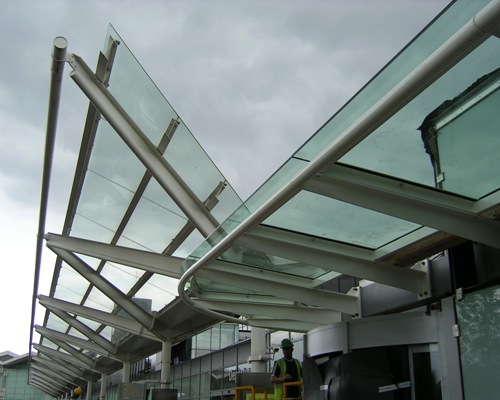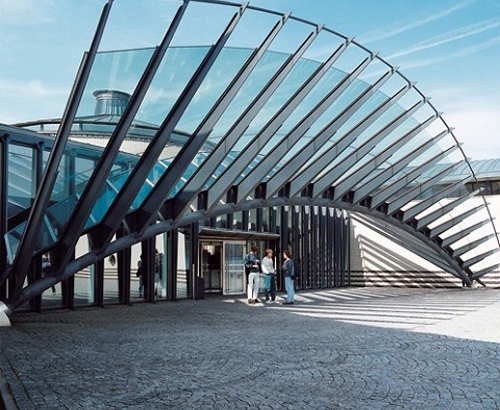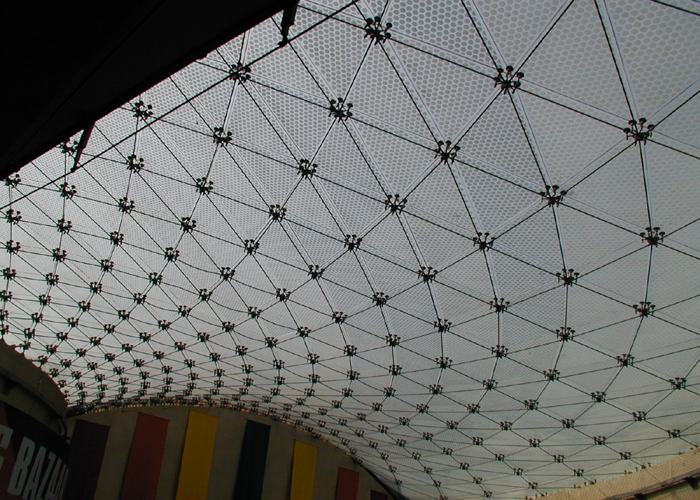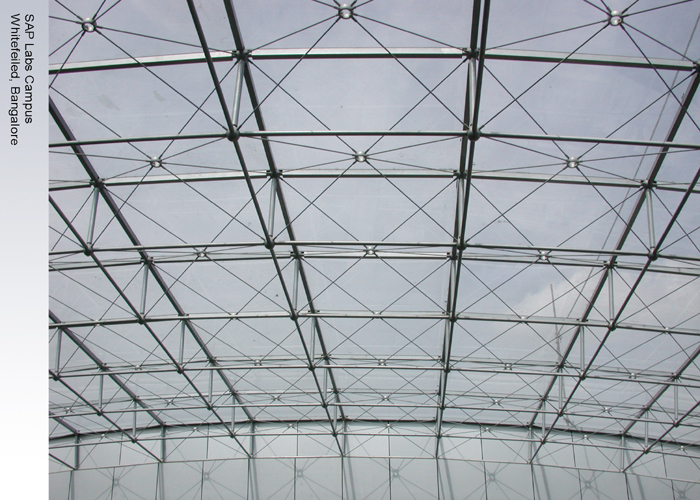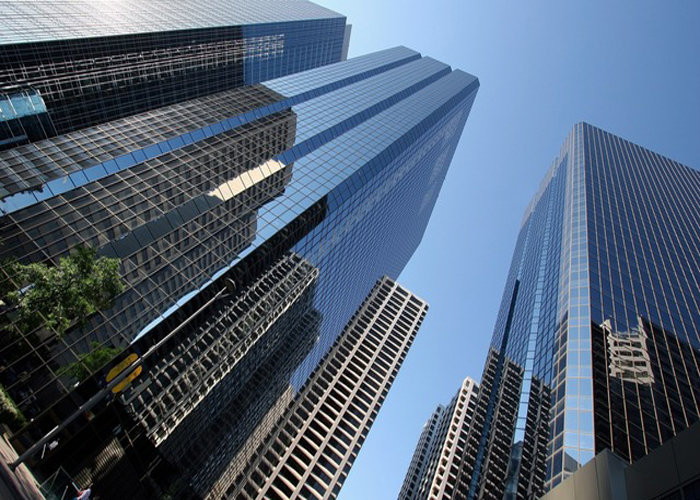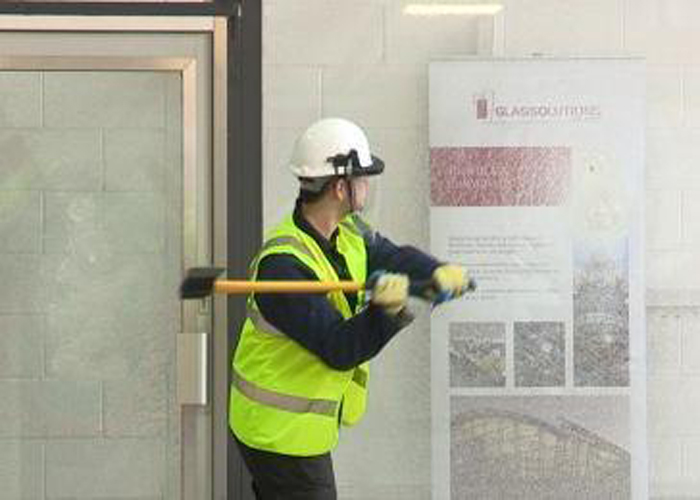what is heat strengthened glass
Heat strengthened glass is a semi tempered glass, which has been strengthened thermally by inducing a surface compression of 6000 to 9000 psi as compared to a range of 11000 to 20000 psi in case of fully tempered glass. It is two times stronger than annealed glass. Though it is not considered to be a safety glass, it is widely used on building facades due to better optics.
Features

Strong
Heat Strengthened Glass is 2 times stronger than normal annealed glass.

Safety
The fragments tends to remain in sashes and having less probability of fallout.

Optics
Heat Strengthened Glass has flatter finish and has lesser optical distortions

No Thermal Breakage
Heat Strengthened Glass will resist temperature difference of up to approximately 130°c.
Range Available
- Maximum size : 3000 mm X 6000 mm or 3500 mm X 5000 mm
- Minimum size : 220 mm diagonals
- Thickness range : 3 mm to 19 mm
- Colors : Clear, Bronze, Gray, Green, Blue, Reflective & Low-E
- Bent Tempered: 2500 mm (width) X 3500 mm (straight edge)
- Minimum radius : 1100 mm
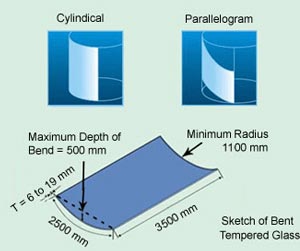
HEAT STRENGTHENED GLASS VS toughened glass vs ANNEALED GLASS
| Properties | Tempered Glass | Heat strengthened glass | Annealed Glass |
|---|---|---|---|
| Thermal stress | Upto 250°C | Upto 130°C | Upto 50°C |
| Strength | 4 times of annealed | 2 times of annealed | Not strong |
| Bending strength | 120 – 200 N/mm² | 60 – 100 N/mm² | 40 N/mm² |
| Design stress | 50 Mpa | 27 Mpa | 17 Mpa |
| Surface compression | >10000 psi (69 Mpa) | 3500-7500psi (24-52 Mpa) | Upto 2800 psi (19 MPa) |
| Safety | Approved as safety glazing for most applications |
Not approved as safety glazing |
Not approved as safety glazing |
| Site alterations | Not possible | Not possible | Possible |
| Flatness | Slight bow and corrugation |
Bow and corrugation lower than tempered glass |
Very flat |
| Optics | Reasonably good | Good. Comparatively better than tempered glass |
Very good |
| Lamination | Min 1.52 PVB | Min 1.52 PVB | Min 0.38mm PVB |
| NiS breakage | Prone | Extremely rare possibility | Non existent |
| Heat Soaking | Recommended | Not necessary | Not required |
applicatons of heat strengthened glass
how is heat strengthened glass made
Heat Strengthened Glass is made on state of the art electrically heated horizontal furnace, which heats the glass to an uniform temperature of approximately 660ºC. Ceramic rolls convey the glass through these furnace at speeds regulated to ensure temperature uniformity and minimal optics distortions. The heat strengthened process parallels the traditional process of glass tempering, except that the heating temperature are lower and the cooling cycle is less rapid. During production, non-destructive verification of the range of stresses is done by using grazing angle surface polarimeter to ensure the right surface compression.
Why does heat strengthened glass have better optics
Heat Strengthened glass have better optics because of lower temperature at processing which leads to less distortion on the glass.
Is heat strengthened glass is safety glass
Heat-strengthened glass is not a safety glass product but it is suitable for security laminates.
Does heat strengthened glass breaks spontaneously
NO, heat strengthened glass does not breaks spontaneously.
Why heat strengthened glass is more suitable for security laminated glass
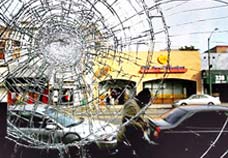 Laminated glass resists intrusion because the inter-layer continues to safeguard the building even after the glass itself is broken. Security glass cannot be cut from only one side, so ordinary glass cutters are useless as break-in tools. Laminated glass tends to resist impact. In multiple configurations, it can even resists bullets, heavy objects, or small explosions. In most cases, it takes many blows, all in the same spot, to penetrate the glass.
Laminated glass resists intrusion because the inter-layer continues to safeguard the building even after the glass itself is broken. Security glass cannot be cut from only one side, so ordinary glass cutters are useless as break-in tools. Laminated glass tends to resist impact. In multiple configurations, it can even resists bullets, heavy objects, or small explosions. In most cases, it takes many blows, all in the same spot, to penetrate the glass.
Is heat strengthened is suitable for glass doors
No, Heat Strengthened glass is not suitable for glass doors.

